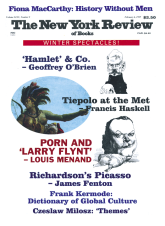Christopher Robin
In April of 1996 the international press carried the news of the death, at age 75, of Christopher Robin Milne, eternalized in a book by his father A.A. Milne, Winnie-the-Pooh ,as Christopher Robin.
I must think suddenly of matters too difficult for a bear of little brain. I have never asked myself what lies beyond the place where we live, I and Rabbit, Piglet and Eeyore, with our friend Christopher Robin. That is, we continued to live here, and nothing changed and I just ate my little something. Only Christopher Robin left for a moment.
Owl says that immediately beyond our garden Time begins, and that it is an awfully deep well. If you fall in it, you go down and down, very quickly, and no one knows what happens to you next. I was a bit worried about Christopher Robin falling in it, but he came back and then I asked him about the well. “Old bear”—he answered—“I was in it and I was falling and I was changing as I fell. My legs became long, I was a big person, I wore trousers down to the ground, I had a grey beard, then I grew old, hunched, and I walked with a cane, and then I died. It was probably just a dream, it was quite unreal. The only real thing was you, old bear, and our shared fun. Now I won’t go anywhere, even if I’m called for an afternoon snack.”
A Banner
Percy, the Prince of Northumberland’s son (his elder brother, called Hotspur, appears in Shakespeare’s royal chronicles), was a knight without stain or reproach. Animated with an ardor to carry the Christian faith to the heathen, he joined the Teutonic Order fighting at the frontiers of Christendom. We would have known nothing of his presence in our regions if not for an item noted down under the year 1393 in the chronicle of Lindenblat and Vigand. The Order’s troops, after they crossed the River Neman at Alytus (Aliten), marched toward Lida. The banner with Saint George was carried by Brother Rupprecht Sekendorf. This angered Percy, who considered that that honor should belong to the knights from England. He drew his sword and an armed clash was imminent, but at the last moment the elders of the Order succeeded in reconciling the parties.
Nearly six hundred years later the Vatican declared that the patron of knighthood, Saint George fighting a dragon, never existed.
Chur-chu-rah
The system of public speech in that country seemed impenetrable to foreigners who only wondered how people could live and even continue to smile under so strong a pressure of obligatory phraseology. I succeeded in finding a key to that system when I remembered certain games of my childhood that we used to play in our tenement house yard. Whether racing after each other or exchanging blows, all the while we knew that it was enough to pronounce a magic word and you would automatically exclude yourself from the game, becoming untouchable. That word was, I can reveal it now, Chur-chu-rah.
The monotony of speeches, papers, journalistic articles, scholarly proceedings in that country might have been unbearable, as they used a wooden language made of mandatory clichés. Against that background, the pronouncements of the few were astonishing for their brightness, color, and logic, as if they were made in an uncensored press. What was the secret? Those few knew a word which, when pronounced, would put you out of the game, and then all prohibitions were lifted. Of course, the word was well guarded and only the initiates realized it was used. Yet a considerable number of people were familiar with it in its version applicable to everyday conversation, and that allowed them to live and to talk normally.
Father’s Worries
—Unnecessary were all those worries of yours about your washout of a son. Certainly, it’s painful for a hard-working and solid man to watch a lazybones who is unable to earn even a penny and all his life lives on his father’s keep. Yet if it were not for him, nobody would know today of a merchant from Aix. He made the name of your family famous, for he had been proclaimed a genius. And as to money, for the value of his paintings you could buy all Aix, where children used to throw stones at him.
—Easy to say today. I watched him and found in him all my weaknesses of which I was ashamed. I, too, when I was young wanted just to stargaze and compose verses, but I overcame my sloppiness and forced myself to work. What did I get from his genius, since I did not manage to learn about it? The portrait he painted of me is not at all bad, but that was when he was still a student. Later on, only daubing. Your arguments do not convince me, for a prodigal son is a heavy sorrow and if one in many thousands proves his worth, the exception does not change anything.
Advertisement
—Translated from the Polish by the author and Robert Hass
This Issue
February 6, 1997



